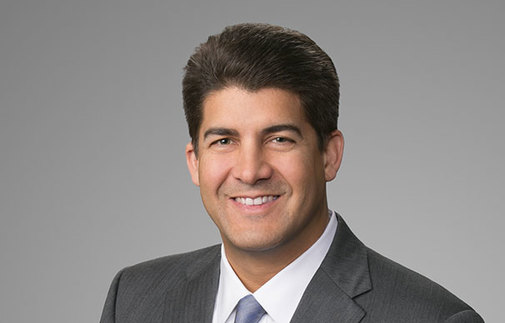Alert "SBA Issues Guidance on PPP Borrower Changes of Ownership"
On October 2, 2020, the Small Business Administration (SBA) published guidance on when SBA consent must be obtained before a PPP borrower undergoes a change of ownership. It not only covers changes in controlling ownership interests and certain asset sales but also could apply to redemptions of existing minority owners by PPP borrowers, and to buyouts of minority owners by other existing owners. There is potential for significant delay and disruption of deal structures. The new guidance could also require mandatory deal terms to be included in M&A agreements and should be of particular interest to M&A targets with PPP loans. Ramifications of the guidance need to be considered well before the letter of intent stage of the transaction. Here are some key points of the guidance:
What “changes of ownership” are covered by the guidance?
The types of “change of ownership” transactions covered by the guidance are broader than a change of “control”. They include the following:
- A sale or other transfer of 20% or more of the of the ownership interests in the PPP borrower since date of SBA approval of the PPP loan. Smaller changes in equity ownership during that period must be aggregated to determine if the 20% threshold is met or exceeded. Sales and other transfers to affiliates and existing owners are covered, not just sales to new owners.
- Sales or transfers of 50% or more of the assets of the PPP borrower (measured by their fair market value) in one or more transactions. An aggregation test for multiple asset sales since the date of SBA approval of the PPP loan will be applied to determine if the 50% threshold is met or exceeded.
- Mergers of the PPP borrower with or into another entity. No percentage ownership in the resulting or surviving entity after the merger is specified for this change of ownership to be triggered. Accordingly, even if the PPP borrower’s equity owners own more than 80% of the entity surviving the merger, a change of ownership would be deemed to have occurred.
Notification to the PPP Lender of a pending “change of ownership” is required, even if SBA consent is not required.
As noted below, not all change of ownership transactions require SBA consent. But the guidance also provides that “[p]rior to the closing of any change of ownership transaction, the PPP borrower must notify the PPP lender in writing of the contemplated transaction and provide the PPP lender with a copy of the proposed agreements or other documents that would effectuate the proposed transaction.” Although it is likely that the PPP loan documentation of most PPP borrowers will require notice to, and consent of, the PPP lender for changes in control, significant asset sales and mergers, that loan documentation may not require notification/consent to/of the PPP lender for ownership changes as small as a 20%, as is required by the SBA guidance.
Changes of Ownership that Do Not Require SBA Consent
Exception for Sales and Transfers of Ownership Interests of 50% or Less. If the proposed change of ownership interests will be 50% or less (with aggregation), no prior SBA approval is needed. Lending bank approval may be required by the PPP loan documentation for these types of transactions, but unlike other SBA Section 7(a) loans, the lending bank does not have to obtain prior SBA approval to give the PPP lender’s consent to the transaction. As noted above, if the ownership interest to be transferred in the PPP borrower is 20% or more, the PPP lender must be notified before closing of the transaction, even if SBA or PPP lender consent is not required.
Exception for Filing of Forgiveness Application Coupled with Establishment of Special Escrow Account. Sales of ownership interests of more than 50%, asset sales of 50% or more in fair market value, and mergers can be structured to legitimately avoid SBA consent, but only if the following significant protections are put in place before closing:
- The PPP borrower must complete and submit to its PPP lender a loan forgiveness application along with any required supporting documentation. Importantly, the guidance requires that the forgiveness application must reflect that the PPP borrower has used all of its PPP loan proceeds. Many PPP borrowers will not be able to meet this requirement, particularly if they were eligible for and chose a 24-week “covered period” to spend their PPP loan proceeds and will need the full 24-weeks to spend those PPP loan proceeds.
- An interest-bearing escrow account controlled by the PPP lender must be established with funds equal to the outstanding balance of the PPP loan. After the forgiveness process is complete (including any appeals), the funds in escrow must be disbursed first to repay any remaining PPP loan balance plus interest. If an SBA Section 7(a) loan is being used to finance the change of ownership, the proceeds of that loan cannot be used to finance the escrow account.
- If structured as a sale of ownership interests or a merger to an entity that already has its own PPP loan, the acquirer must segregate and separately track and document the use of PPP funds by each PPP borrower and may not aggregate the two loans or the use of proceeds for each loan.
Note that PPP lender consent, in addition to SBA consent, may still be required by the existing PPP loan documentation for an ownership change. Nothing in the guidance requires a PPP lender to consent to an ownership change, or to accommodate a PPP borrower’s request to put the escrow arrangements in place.
Exception if the PPP Loan is “Fully Satisfied”. No SBA consent is required for a transaction if prior to its closing the PPP loan has been repaid in full or forgiven in full (which means the SBA has reimbursed the PPP lender for the forgiven PPP loan), or has been fully satisfied by a combination of those means.
Transactions that Require SBA Consent
If a transaction cannot be excluded from the definition of a “change of ownership” or the forgiveness application/escrow arrangements described above cannot be met, the guidance provides that the SBA’s prior approval of the change of ownership is required, and that the PPP lender may not unilaterally approve the change of ownership.
If SBA consent to a change of ownership is required, the PPP lender (not the PPP borrower) must apply for the SBA’s consent, so cooperation between the PPP lender and borrower is essential. The PPP lender must submit the following information to the SBA:
- the reason why the PPP borrower cannot repay the PPP note in full or establish the special escrow account described above;
- the details of the proposed transaction;
- a copy of the executed PPP note;
- any letter of intent or the purchase or sale agreement setting for the responsibilities of the PPP borrower, seller (if different than the PPP borrower) and buyer;
- disclosure of whether the buyer has an existing PPP loan (and if so, the SBA loan number); and
- a list of all owners of 20% or more of the buyer.
One significant condition to SBA approval of asset sale transactions is that the buyer must expressly assume “all of the PPP borrower’s obligations under the PPP loan, including responsibility for compliance with the PPP loan terms.” Furthermore, the guidance requires that express assumption language must be included in the purchase and sale agreement, or in a separate assumption agreement that is required to be submitted to the SBA. Many buyers may find this assumption obligation troubling, particularly the assumption of the seller’s compliance obligations in addition to the PPP indebtedness itself. Note that this express assumption by the buyer of the seller’s PPP obligations is not required if the forgiveness application/escrow fund procedure summarized above is followed.
The SBA can also require unspecified “additional risk mitigation measures” as a condition to its approval.
Finally, the SBA gives itself 60 days after a complete submission to review the transaction and provide a determination. This extended review period alone may render seeking SBA impractical for many transactions.
PPP Lenders Must Notify the SBA of Changes in Ownership
In addition to any SBA approvals required by the guidance, and even if SBA approval is not required, the PPP lender must notify the appropriate SBA Loan Servicing Center within five business days after completion of a covered change of ownership. The PPP lender’s notification to the SBA must include the following information:
- the identity of the new owner(s) of the ownership interests;
- new ownership percentages;
- tax identification number(s) of any owner(s) holding 20% or more of equity in the business; and
- the location of, and the amount of funds in, the escrow account under the control of the PPP lender, if an escrow account is required.
Attorneys
- Senior Counsel
- Partner
- Co-Managing Partner



